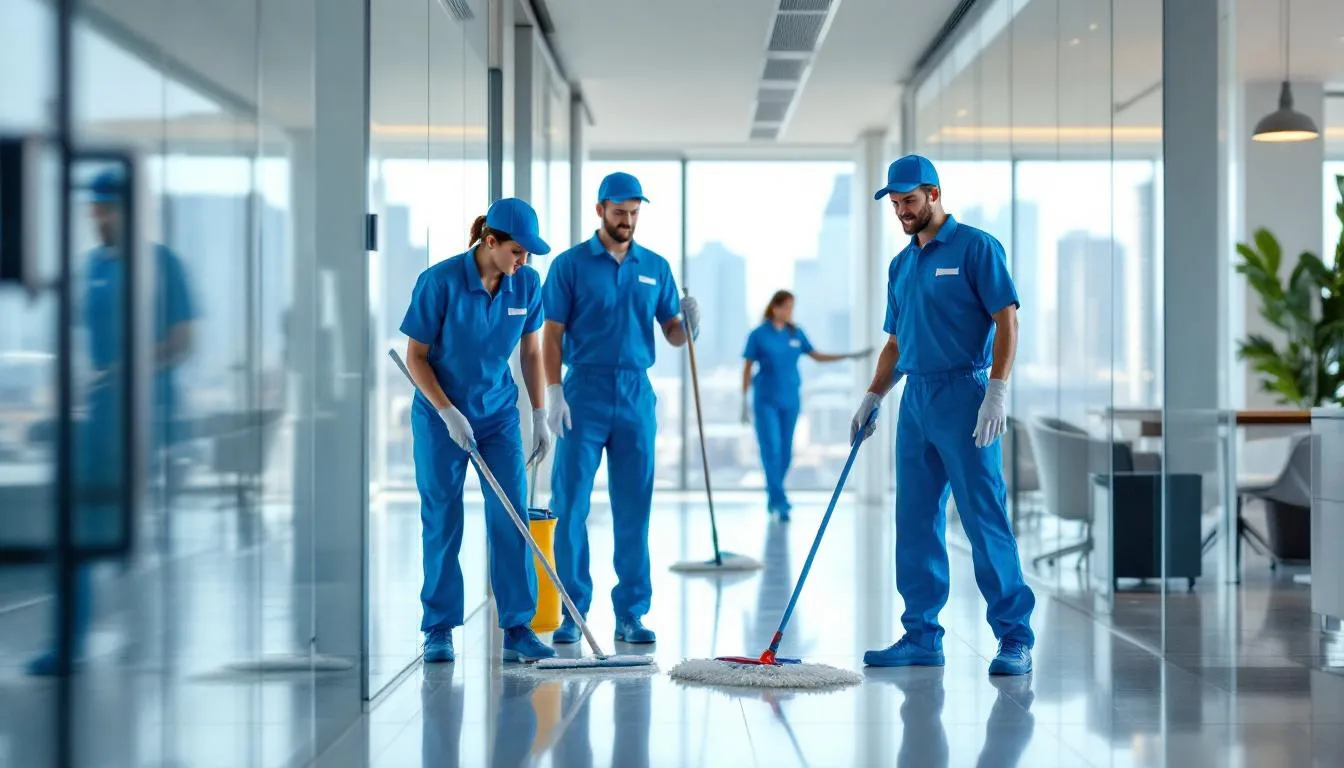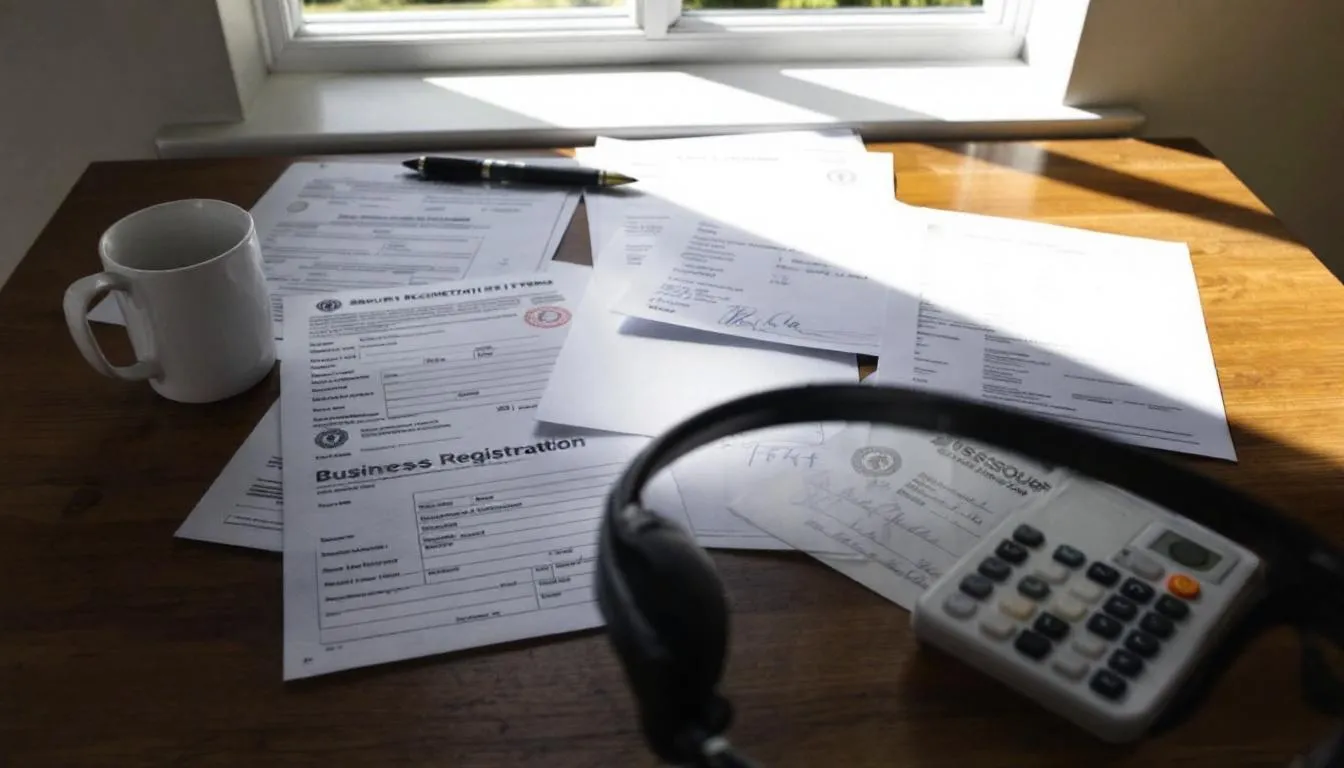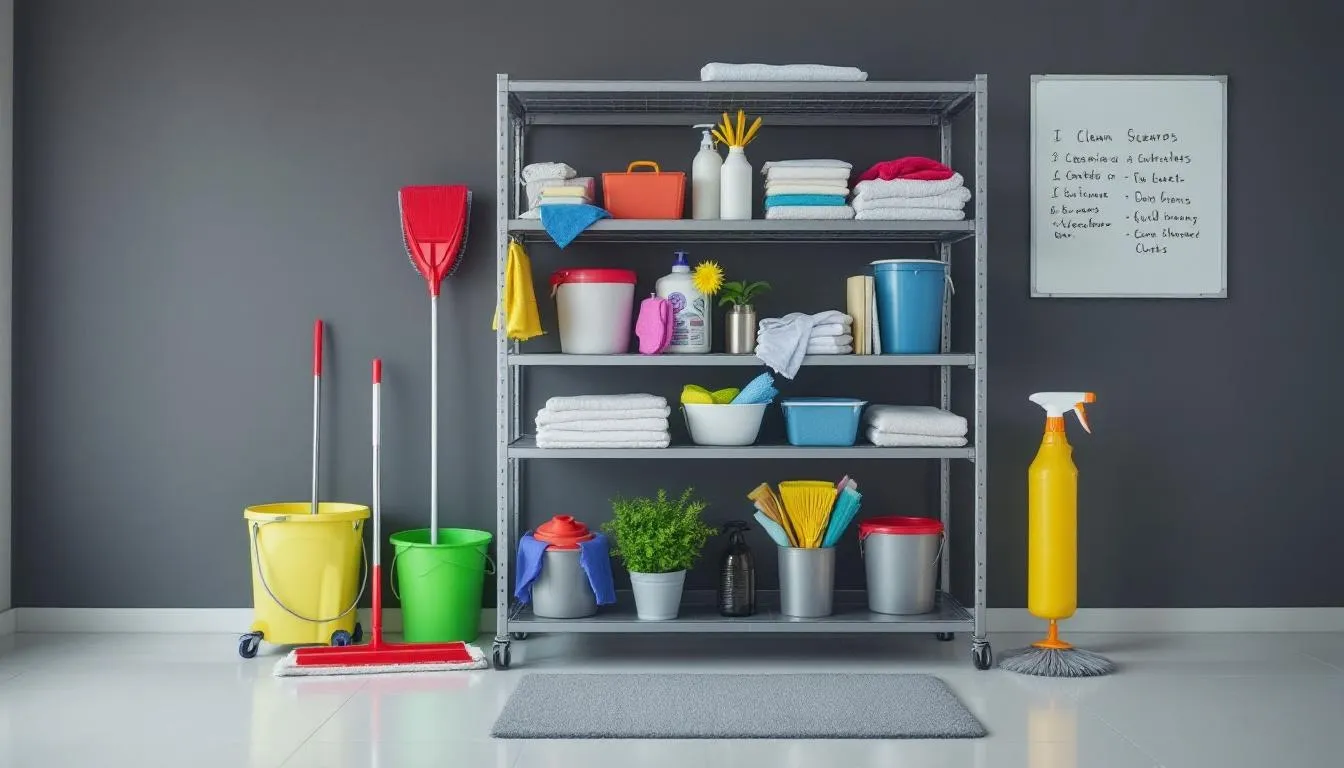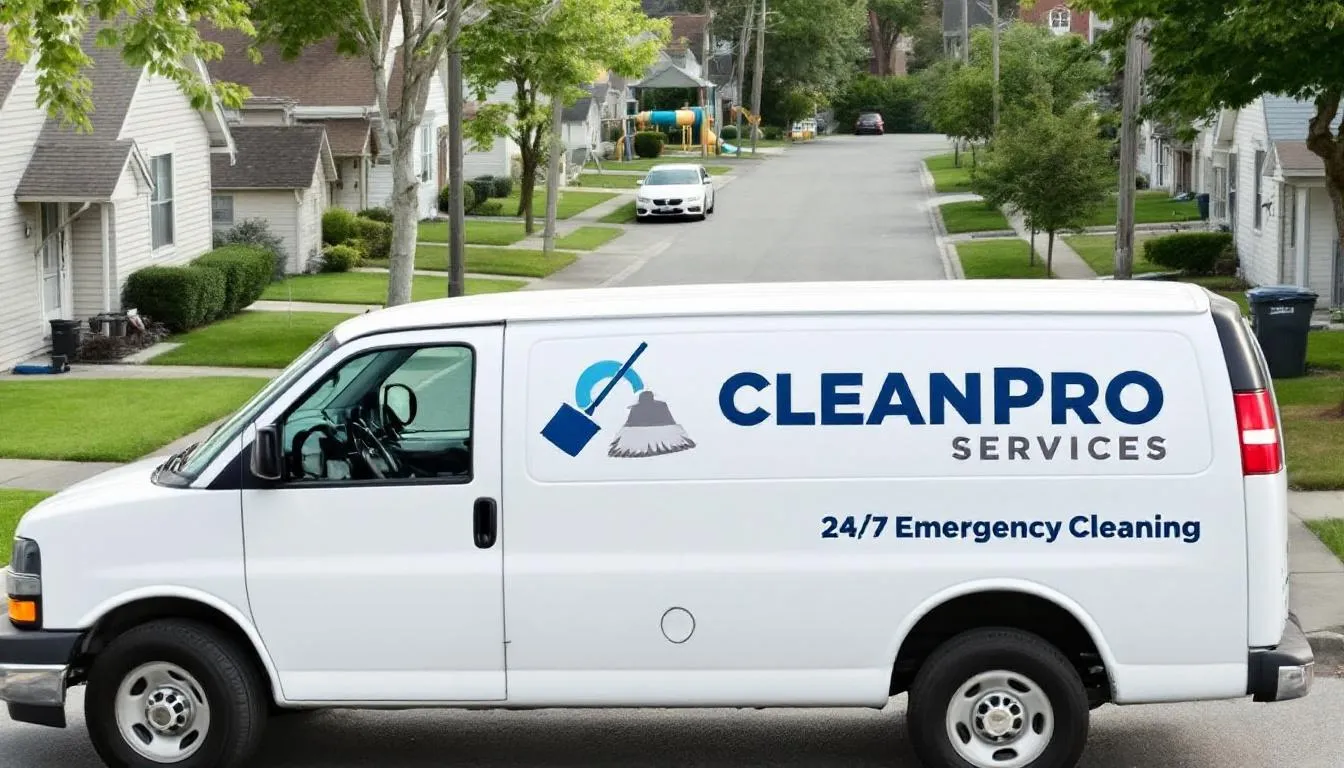Starting a cleaning business in Missouri offers exceptional opportunities with the state’s growing economy and increasing demand for professional cleaning services across major metropolitan areas. Missouri’s diverse market, from bustling urban centers like St. Louis and Kansas City to thriving college towns like Columbia, creates multiple avenues for cleaning business success.
The cleaning industry in Missouri continues to expand, driven by busy professionals, aging populations, and increased awareness of hygiene standards post-pandemic. Whether you’re considering residential cleaning, commercial cleaning services, or specialized cleaning niches, Missouri’s business-friendly environment and relatively low startup costs make it an ideal location to launch your cleaning business.
This comprehensive guide will walk you through every step of how to start a cleaning business in Missouri, from understanding market opportunities to scaling your operations across the state’s diverse regions.
Understanding Missouri’s Cleaning Business Market
Missouri’s cleaning industry represents a robust sector with significant growth potential across the state’s varied geographic and economic landscape. The industry benefits from several key factors that make it particularly attractive for new business owners.
Market Size and Growth Opportunities
The Missouri cleaning industry has experienced consistent growth, with the market expanding at approximately 6-8% annually. This growth outpaces the national average, driven by Missouri’s steady population growth and commercial development in major metropolitan areas.
Key market drivers include:
- Rapid commercial real estate development in St. Louis, Kansas City, and Springfield
- Growing number of dual-income households requiring cleaning services
- Increased outsourcing of cleaning tasks by businesses focusing on core operations
- Rising demand for specialized cleaning services in healthcare and industrial sectors
Regional Market Analysis
St. Louis Metropolitan Area: The largest market in Missouri, with over 2.8 million residents creating substantial demand for both residential and commercial cleaning. The area’s diverse economy, including healthcare, manufacturing, and professional services, provides numerous commercial opportunities.
Kansas City Metro: With approximately 2.1 million residents, Kansas City offers strong market potential. The city’s business-friendly environment and growing tech sector create demand for professional cleaning services.
Springfield Region: Serving as a regional hub for southwest Missouri, Springfield’s market supports both residential and commercial cleaning businesses, with particular opportunities in healthcare cleaning due to the area’s medical facilities.
Columbia and University Towns: College towns like Columbia present unique opportunities for move-in/move-out cleaning services, student housing maintenance, and seasonal cleaning contracts.

Competition and Market Saturation
The competitive cleaning industry in Missouri varies significantly by region. Urban areas face more competition from national franchises like Merry Maids and Molly Maid, while rural and suburban areas often have limited competition, creating opportunities for independent operators.
Market research reveals that most Missouri markets can support additional cleaning businesses, particularly those offering:
- Eco-friendly cleaning services
- Specialized commercial cleaning (medical, industrial, post-construction)
- Technology-enhanced service delivery
- Competitive pricing with superior customer service
Seasonal Trends and Demand Patterns
Missouri’s cleaning business market experiences predictable seasonal fluctuations:
Spring (March-May): Peak demand for deep cleaning, move-in/move-out services, and post-winter cleanup Summer (June-August): Steady demand with increased vacation home and rental property cleaning Fall (September-November): Strong demand for pre-holiday cleaning and commercial contract renewals Winter (December-February): Lower residential demand but steady commercial services
Understanding these patterns helps with cash flow planning and marketing strategy development.
Business Planning and Structure
Creating a comprehensive business plan forms the foundation of a successful cleaning business in Missouri. Your business plan should address market analysis, operational strategies, financial projections, and growth plans specific to Missouri’s market conditions.
Developing Your Business Plan
A well-structured cleaning business plan should include:
Executive Summary: Define your mission, target market, and unique value proposition in Missouri’s competitive landscape.
Market Analysis: Detail your research on local competition, target demographics, and pricing strategies for your specific Missouri region.
Service Offerings: Clearly define whether you’ll focus on residential cleaning, commercial cleaning, or both, along with any specialized services.
Marketing Strategy: Outline how you’ll reach customers through digital marketing, local networking, and community engagement specific to Missouri markets.
Financial Projections: Include realistic revenue forecasts, typically ranging from $30,000-$50,000 for first-year solo operations in Missouri.
Choosing Your Business Structure
Selecting the right business structure affects liability protection, tax implications, and operational flexibility. Missouri offers several options:
Limited Liability Company (LLC): Most popular choice for cleaning businesses, providing liability protection while maintaining operational flexibility. Missouri LLC filing costs $50 online through the Secretary of State’s office.
Corporation: Suitable for businesses planning rapid growth or seeking investment. Offers strong liability protection but involves more complex tax implications and reporting requirements.
Sole Proprietorship: Simplest structure but offers no liability protection. Personal assets remain at risk for business debts and claims.
Partnership: Appropriate when two or more owners plan to operate together, requiring clear partnership agreements and shared liability considerations.
Financial Planning and Projections
Realistic financial planning helps ensure your cleaning business maintains adequate cash flow during startup and growth phases. Missouri cleaning businesses typically experience:
- Initial startup costs ranging from $3,000-$10,000 for independent operators
- Monthly operating expenses of $1,500-$3,500 depending on service area and equipment
- Average profit margins of 15-25% after the first year of operations
- Break-even periods of 6-12 months for well-planned operations
Consider Missouri’s relatively low cost of living when setting pricing and projecting expenses, as this creates opportunities for competitive pricing while maintaining healthy profit margins.
Target Market Identification
Missouri’s diverse population creates multiple target market opportunities:
Residential Markets: Busy professionals in Kansas City and St. Louis, retirees seeking assistance with home maintenance, and families in growing suburban communities.
Commercial Markets: Office buildings, medical facilities, retail spaces, and industrial facilities across Missouri’s major metropolitan areas.
Specialized Markets: Post-construction cleanup, real estate move-in/move-out services, and vacation rental maintenance.
Understanding your target market helps focus marketing efforts and develop appropriate service packages that meet specific customer needs.
Legal Requirements and Licensing in Missouri
Operating a cleaning business legally in Missouri requires compliance with state and local regulations. Understanding these requirements helps you operate legally while building credibility with potential clients.
Missouri State Registration Requirements
All cleaning businesses operating in Missouri must register with the Missouri Secretary of State’s office. This process establishes your business as a legal entity and enables you to:
- Open business bank accounts
- Apply for business licenses and permits
- File business taxes
- Enter into contracts with suppliers and clients
- Apply for business insurance
The registration process involves filing Articles of Organization for LLCs or Articles of Incorporation for corporations through the Missouri Secretary of State’s online portal.
Business Name Registration
If operating under a name different from your legal business name, Missouri requires filing a Fictitious Business Name (DBA) registration. This applies when:
- Operating as a sole proprietorship under a business name
- Using a trade name different from your registered business name
- Marketing under multiple brand names
DBA registration costs vary by county but typically range from $15-$25. Registration must be renewed periodically, usually every five years.
City and County Licensing Requirements
Missouri cities and counties may require additional business licenses or permits. Requirements vary significantly by location:
Kansas City: Requires a business license for all commercial operations within city limits. Licenses cost approximately $25-$100 annually depending on business size.
St. Louis: Mandates business licenses for most commercial activities. Additional requirements may apply for businesses operating in specific zones or providing services to city facilities.
Columbia: Requires business registration and may require special permits for businesses operating from residential locations.
Independence: Requires business licenses with annual renewal requirements and potential zoning compliance verification.
Contact your local city clerk’s office to determine specific licensing requirements for your operating area.
Tax Registration and Obligations
Missouri cleaning businesses must comply with various tax obligations:
Missouri Department of Revenue Registration: Required for businesses that may collect sales tax or have employees. Some cleaning services may be subject to Missouri sales tax depending on service type and location.
Federal Employer Identification Number (EIN): Required for businesses with employees or operating as LLCs or corporations. Obtain your EIN free through the IRS website.
Workers’ Compensation: Required when hiring employees, with specific coverage requirements and premium costs based on payroll and risk classification.
Regular tax filing obligations include quarterly estimated tax payments, annual income tax returns, and employment tax reporting when applicable.

Insurance and Bonding Requirements
Protecting your cleaning business through appropriate insurance coverage builds client trust while safeguarding your business assets and personal finances from potential claims and liabilities.
General Liability Insurance
General liability insurance represents the foundation of cleaning business protection, covering claims related to:
- Property damage occurring during cleaning services
- Bodily injury to clients or third parties
- Personal and advertising injury claims
- Product liability for cleaning supplies or equipment
Missouri cleaning businesses typically pay $400-$700 annually for general liability insurance, with costs varying based on:
- Coverage limits and deductibles
- Service types and risk levels
- Claims history and experience
- Geographic service area
Professional and Workers’ Compensation Insurance
Professional Liability: Covers claims related to errors, omissions, or failure to perform services as contracted. Particularly important for commercial cleaning contracts with specific performance standards.
Workers’ Compensation: Missouri law requires workers’ compensation insurance when hiring employees. Coverage protects employees injured on the job while protecting your business from related lawsuits.
Premium costs vary based on:
- Number of employees and total payroll
- Risk classification for cleaning work
- Safety record and claims history
- Coverage limits and deductible amounts
Bonding for Trust and Security
Professional bonding provides additional credibility and protection for your cleaning business:
Fidelity Bonds: Protect clients against theft or dishonest acts by employees. Particularly valuable for residential cleaning services and builds significant client trust.
Surety Bonds: May be required for certain commercial contracts, guaranteeing completion of contracted services according to specifications.
Bonding costs typically range from $100-$400 annually, representing a valuable investment in business credibility and client confidence.
Insurance Provider Comparison
Research multiple insurance providers to find competitive rates and appropriate coverage:
- State Farm: Offers business insurance packages tailored to small service businesses
- Progressive: Provides commercial liability and workers’ compensation options
- NEXT Insurance: Specializes in small business insurance with online application processes
- Local Independent Agents: Often provide personalized service and competitive rates for Missouri businesses
Compare coverage limits, deductibles, premium costs, and customer service ratings when selecting insurance providers.
Startup Costs and Funding Options
Understanding the complete financial picture of starting a cleaning business in Missouri helps you plan effectively and secure necessary funding for successful launch and growth.
Equipment and Supply Investment
Basic Cleaning Equipment ($500-$1,500):
- Commercial-grade vacuum cleaners
- Mops, buckets, and floor cleaning equipment
- Microfiber cloths and cleaning rags
- Spray bottles and dispensers
- Personal protective equipment (gloves, masks, safety glasses)
Professional Equipment Upgrade ($1,500-$3,500):
- Commercial floor machines and buffers
- Carpet cleaning equipment
- Pressure washers for exterior cleaning
- Industrial vacuum systems
- Specialized equipment for window or upholstery cleaning
Cleaning Supplies ($200-$500 monthly):
- All-purpose cleaners and disinfectants
- Specialized cleaners for different surfaces
- Paper products and disposable supplies
- Eco-friendly cleaning alternatives
- Chemical safety and storage containers
Vehicle and Transportation Costs
Transportation represents a significant startup expense for most Missouri cleaning businesses:
Vehicle Purchase or Lease ($15,000-$30,000):
- Reliable van or truck for equipment transport
- Professional vehicle wrapping or signage ($1,000-$3,000)
- Commercial vehicle insurance ($1,200-$2,400 annually)
- Fuel and maintenance budget ($300-$500 monthly)
Equipment Storage Solutions ($200-$800):
- Shelving and organization systems
- Secure storage for supplies and equipment
- Climate-controlled storage for sensitive cleaning chemicals
Technology and Business Operations
Modern cleaning businesses benefit significantly from technology investments:
Scheduling and Management Software ($30-$100 monthly):
- Customer scheduling and routing optimization
- Billing and payment processing
- Customer communication and follow-up
- Employee scheduling and time tracking
Marketing and Branding ($500-$2,500):
- Professional website development
- Business cards and marketing materials
- Local advertising and online marketing
- Social media setup and initial promotion
Working Capital Requirements
Maintain adequate working capital to cover operating expenses during the initial months:
- 3-6 months of operating expenses
- Emergency equipment replacement fund
- Marketing and advertising budget
- Professional development and training costs

Missouri Funding Options
Several funding sources can help finance your cleaning business startup:
Small Business Administration (SBA) Loans: Offer favorable terms for qualified applicants, with local SBA offices in Kansas City, St. Louis, and Springfield providing guidance and support.
Missouri Small Business Development Centers: Provide free consulting and assistance with business planning, funding applications, and operational guidance.
Local Community Banks: Often more flexible with small business loans and familiar with local market conditions.
Equipment Financing: Allows you to purchase equipment while preserving cash flow, with equipment serving as loan collateral.
Personal Investment: Many successful cleaning business owners start with personal savings, maintaining full business ownership and control.
Equipment and Supply Selection
Selecting the right equipment and supplies directly impacts service quality, operational efficiency, and customer satisfaction while affecting ongoing operational costs and profitability.
Essential Cleaning Equipment
Vacuum Systems: Invest in commercial-grade vacuum cleaners designed for frequent use. Consider both upright and canister styles to handle different cleaning situations effectively.
Floor Care Equipment: Quality mops, buckets, and floor cleaning systems form the foundation of professional cleaning services. Microfiber systems often provide superior cleaning results with reduced chemical usage.
Window and Glass Cleaning: Professional squeegees, scrapers, and cleaning solutions ensure streak-free results on windows and glass surfaces.
Specialized Equipment: Depending on your service focus, consider carpet cleaners, pressure washers, floor buffers, or steam cleaning equipment for enhanced service capabilities.
Eco-Friendly Supply Options
Missouri consumers increasingly prefer environmentally responsible cleaning services:
Green Cleaning Products: Certified eco-friendly cleaners appeal to health-conscious customers while often providing effective cleaning results.
Microfiber Technology: Reduces chemical usage while improving cleaning effectiveness, appealing to environmentally conscious clients.
Concentrated Products: Reduce packaging waste and storage requirements while often providing cost savings through bulk purchasing.
Local Supply Sources: Partner with Missouri-based suppliers when possible to reduce shipping costs and support local business relationships.
Technology Integration
Modern technology enhances efficiency and customer service:
Mobile Apps: Enable real-time scheduling updates, customer communication, and service documentation through photos and notes.
GPS Tracking: Optimize routing between customers, reducing travel time and fuel costs while improving schedule reliability.
Payment Processing: Accept credit cards and digital payments on-site, improving cash flow and customer convenience.
Inventory Management: Track supply usage and automate reordering to prevent service interruptions.
Supplier Relationships
Establish relationships with reliable suppliers offering:
- Competitive pricing on bulk purchases
- Consistent product availability
- Delivery services to reduce time spent on supply runs
- Training on new products and techniques
- Credit terms for established businesses
Consider both national suppliers for standard products and local suppliers for specialized items or emergency needs.
Pricing Strategies for Missouri Markets
Developing competitive yet profitable pricing requires understanding local market conditions, competitor pricing, and the value proposition your cleaning business offers to Missouri customers.
Market Rate Analysis
Missouri cleaning service rates vary significantly based on location, service type, and market competition:
Residential Cleaning Rates:
- St. Louis Metro: $25-$45 per hour or $0.08-$0.15 per square foot
- Kansas City Metro: $25-$40 per hour or $0.08-$0.12 per square foot
- Springfield Area: $20-$35 per hour or $0.06-$0.10 per square foot
- Rural Missouri: $18-$30 per hour or $0.05-$0.08 per square foot
- Office buildings: $0.08-$0.25 per square foot
- Medical facilities: $0.12-$0.35 per square foot
- Industrial cleaning: $0.15-$0.40 per square foot
- Retail spaces: $0.06-$0.20 per square foot
Service Package Development
Create tiered service packages that appeal to different customer segments and budget levels:
Basic Cleaning Package: Essential cleaning services at competitive rates, targeting price-sensitive customers while maintaining profitability.
Standard Package: Comprehensive cleaning with additional services, appealing to most residential and small commercial customers.
Premium Package: Detailed cleaning with specialized services, targeting customers willing to pay for superior service and convenience.
Specialized Services: Command premium pricing for services like post-construction cleanup, move-in/move-out cleaning, or deep sanitization services.
Value-Based Pricing Strategies
Focus on the value your services provide rather than competing solely on price:
Time Savings: Emphasize how your services free customers to focus on work, family, or leisure activities.
Health Benefits: Highlight professional cleaning’s impact on indoor air quality and hygiene, particularly relevant post-pandemic.
Consistency: Demonstrate reliable, consistent service quality that customers can depend on.
Convenience: Offer flexible scheduling and additional services that simplify customers’ lives.
Competitive Positioning
Research competitor pricing and service offerings to position your business effectively:
- Identify gaps in competitor service offerings
- Develop unique value propositions
- Consider introductory pricing for new customers
- Create loyalty programs for repeat customers
- Adjust pricing based on demand and capacity
Seasonal and Promotional Pricing
Missouri’s seasonal patterns create opportunities for strategic pricing:
Spring Cleaning Promotions: Capitalize on increased demand with package deals for deep cleaning services.
Holiday Preparation: Offer special rates for pre-holiday cleaning during November and December.
Summer Maintenance: Provide package deals for vacation home or rental property maintenance.
New Customer Incentives: First-time customer discounts help build initial client base and encourage trial of services.
Marketing and Client Acquisition
Effective marketing strategies help you build brand awareness, attract customers, and establish your cleaning business as a trusted service provider in Missouri’s competitive market.
Digital Marketing Foundations
Professional Website: Create a mobile-responsive website showcasing services, pricing, and customer testimonials. Include clear contact information and online booking capabilities.
Search Engine Optimization (SEO): Optimize your website for local searches like “cleaning services Kansas City” or “house cleaning St. Louis” to capture customers actively seeking services.
Google My Business: Claim and optimize your Google My Business listing with accurate information, customer reviews, and regular updates about services and promotions.
Social Media Presence: Maintain active profiles on Facebook and Instagram, sharing before-and-after photos, cleaning tips, and customer success stories.
Local Marketing Strategies
Community Networking: Join local business associations, chambers of commerce, and community organizations to build relationships and generate referrals.
Real Estate Partnerships: Develop relationships with real estate agents, property managers, and rental companies who regularly need cleaning services for move-in/move-out situations.
Direct Mail Marketing: Target specific neighborhoods with postcards or flyers highlighting your services and introductory offers.
Vehicle Advertising: Professional vehicle wraps or magnetic signs turn your work vehicles into mobile billboards throughout Missouri communities.

Customer Referral Programs
Word-of-mouth referrals represent the most effective marketing for cleaning businesses:
Referral Incentives: Offer discounts or free services to customers who refer new clients to your business.
Customer Loyalty Programs: Reward repeat customers with periodic discounts or bonus services to encourage retention and referrals.
Online Review Encouragement: Actively request satisfied customers to leave positive reviews on Google, Facebook, and other review platforms.
Thank You Programs: Send thank-you notes, holiday cards, or small gifts to valued customers to maintain relationships and encourage referrals.
Content Marketing and Education
Position yourself as a cleaning expert through educational content:
Cleaning Tips Blog: Share seasonal cleaning advice, stain removal tips, and home maintenance guidance relevant to Missouri homeowners.
Social Media Education: Post cleaning tips, product recommendations, and behind-the-scenes content showing your professional approach.
Community Presentations: Offer to speak at community groups, senior centers, or business organizations about professional cleaning benefits.
Email Newsletters: Send monthly newsletters with cleaning tips, special offers, and company updates to maintain customer engagement.
Measuring Marketing Effectiveness
Track marketing results to optimize your investment:
- Monitor website traffic and conversion rates
- Track lead sources and conversion rates
- Calculate customer acquisition costs by marketing channel
- Measure customer lifetime value and retention rates
- Adjust marketing strategies based on performance data
Operations and Quality Management
Implementing consistent operational procedures and quality control measures ensures customer satisfaction while building a reputation for reliability and professionalism in Missouri’s competitive cleaning industry.
Standard Operating Procedures
Service Checklists: Develop detailed checklists for each service type ensuring consistent results regardless of which employee performs the work.
Time Management: Establish realistic time estimates for different cleaning tasks and train employees to work efficiently while maintaining quality standards.
Supply Management: Implement inventory tracking systems to ensure adequate supplies are always available without excessive inventory investment.
Safety Protocols: Establish comprehensive safety procedures for chemical handling, equipment use, and job site safety to protect employees and customers.
Quality Control Systems
Initial Training: Provide comprehensive training for all employees covering cleaning techniques, customer service, safety procedures, and company standards.
Regular Inspections: Conduct periodic quality inspections to ensure services meet established standards and identify areas for improvement.
Customer Feedback: Implement systems for collecting and responding to customer feedback, addressing concerns promptly and using feedback to improve services.
Performance Metrics: Track key performance indicators including customer satisfaction scores, complaint rates, employee retention, and service consistency.
Customer Communication Protocols
Service Confirmations: Confirm appointments 24-48 hours in advance to reduce no-shows and demonstrate professionalism.
Arrival Notifications: Notify customers when technicians are en route to provide transparency and convenience.
Service Documentation: Provide customers with documentation of services performed, including photos when appropriate.
Follow-Up Communication: Contact customers after service completion to ensure satisfaction and address any concerns promptly.
Technology Integration for Efficiency
Scheduling Software: Use professional scheduling systems to optimize routes, manage appointments, and communicate with customers and employees.
Mobile Applications: Equip employees with mobile apps for real-time communication, documentation, and time tracking.
Customer Management Systems: Implement CRM systems to track customer preferences, service history, and communication records.
Financial Management: Use accounting software designed for service businesses to track revenue, expenses, and profitability by customer and service type.
Employee Management and Training
Hiring Standards: Establish clear hiring criteria including background checks, references, and skill assessments to ensure quality employees.
Ongoing Training: Provide regular training updates on new techniques, products, and customer service skills to maintain service quality.
Performance Management: Implement fair performance evaluation systems with clear expectations and opportunities for advancement.
Retention Strategies: Offer competitive compensation, flexible scheduling, and recognition programs to retain quality employees in Missouri’s competitive labor market.
Scaling Your Missouri Cleaning Business
Growing your cleaning business beyond initial startup requires strategic planning, operational improvements, and careful financial management to maintain quality while expanding your customer base and service area.
Employee Hiring and Management
Recruitment Strategies: Develop effective recruitment processes to attract reliable employees in Missouri’s tight labor market. Consider offering competitive wages ($15-$22/hour for entry-level positions in urban areas) and benefits to attract quality candidates.
Training Programs: Create comprehensive training programs covering cleaning techniques, customer service, safety protocols, and company policies. Consistent training ensures service quality as you add employees.
Employee Classification: Understand the differences between employees and independent contractors to ensure compliance with Missouri labor laws and tax obligations.
Retention Initiatives: Implement employee retention strategies including recognition programs, advancement opportunities, and flexible scheduling to reduce turnover costs.
Service Expansion Opportunities
Geographic Expansion: Gradually expand your service area to adjacent communities, considering travel time, market demand, and competition levels.
Service Diversification: Add complementary services such as:
- Window cleaning
- Carpet and upholstery cleaning
- Post-construction cleanup
- Pressure washing
- Organizing services
Market Segment Expansion: Move from residential to commercial markets or vice versa, leveraging existing expertise while accessing new revenue opportunities.
Specialized Services: Develop expertise in high-value specialized cleaning such as medical facility sanitization or industrial cleaning.
Multiple Location Considerations
Market Research: Thoroughly research potential new markets considering competition, demographics, and growth potential before expanding to new Missouri cities.
Operational Challenges: Address challenges of managing multiple locations including:
- Consistent service quality across locations
- Equipment and supply distribution
- Employee supervision and training
- Customer service coordination
Financial Management: Implement systems to track profitability by location and allocate resources effectively across multiple markets.
Franchise vs. Independent Growth
Franchise Opportunities: Consider franchising your successful business model to expand rapidly while maintaining brand control and generating franchise fees.
Independent Growth: Maintain complete control while building your brand and reputation throughout Missouri markets.
Hybrid Approaches: Consider licensing your brand or creating partnerships with other cleaning businesses to expand reach while maintaining some control.

Long-Term Financial Planning
Revenue Diversification: Develop multiple revenue streams to reduce dependence on any single customer segment or service type.
Technology Investment: Continue investing in technology to improve efficiency, customer service, and competitive positioning.
Market Analysis: Regularly analyze market conditions, competition, and customer needs to identify growth opportunities and potential threats.
Exit Strategy Planning: Consider long-term goals including potential sale of the business, succession planning, or transition to passive ownership.
Building Strategic Partnerships
Supplier Relationships: Develop strategic partnerships with suppliers to secure better pricing, payment terms, and exclusive products as your business grows.
Professional Service Providers: Build relationships with accountants, attorneys, and business consultants who understand the cleaning industry and can support your growth by helping you secure cleaning contracts.
Industry Associations: Join cleaning industry associations to network with other business owners, access training resources, and stay current with industry trends.
Technology Partners: Partner with software providers and technology companies to access advanced tools and systems that support business growth.
Scaling your cleaning business successfully requires balancing growth ambitions with operational excellence, ensuring that expansion enhances rather than compromises the quality and reputation that built your initial success.
The journey from startup to established cleaning business in Missouri offers significant opportunities for entrepreneurs willing to invest in quality services, professional operations, and strategic growth. Missouri’s diverse markets, business-friendly environment, and growing demand for professional cleaning services create an ideal foundation for building a successful and profitable cleaning business.
By following the comprehensive strategies outlined in this guide, conducting thorough market research, maintaining high service standards, and adapting to changing market conditions, you can establish a thriving cleaning business that serves Missouri communities while achieving your entrepreneurial goals. Remember that success in the cleaning industry comes from consistent service quality, professional operations, and genuine commitment to customer satisfaction.
The key to long-term success lies in continuous improvement, staying current with industry trends, and maintaining the flexibility to adapt your business model as markets and customer needs evolve. With Missouri’s strong economic foundation and growing appreciation for professional cleaning services, your cleaning business can become an integral part of the communities you serve while providing a rewarding and profitable business opportunity.